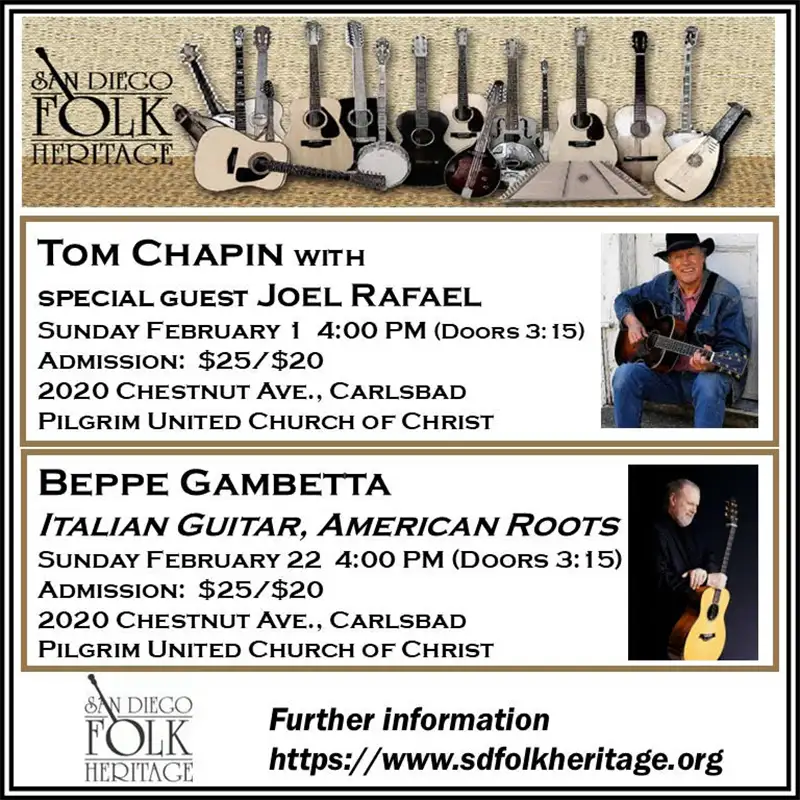Tales From The Road
Joe Louis Walker Puts Music Before Technology

Joe Louis Walker
The technology of music recording has usually shaped, to a large extent, the music that is recorded.
We have only written descriptions of popular music before Mr. Edison invented his talking machine in 1877, but we know that the three-four minute limit of the early wax cylinders then 78 RPM shellac recordings that replaced them shaped the modern popular song. There was no sense in having an eight-minute song if you could only record half of it.
It wasn’t until the development of the long-playing record, or LP, after World War II, with its 20-some minute capacity per side, that songs like, say, “In a Gadda Da Vida” became financially
feasible.
“Albums” of music had existed for decades before the LP — collections of 78s arranged in a folio, comprising four to ten or more songs in a physical package that resembled a photo album of the era. But the LP format gave us the modern “album” — 40 minutes or so of music released together.
While the CD extended that time frame even further, and now digital is making the entire notion of a technologically imposed time limit on a song obsolete, for bluesman Joe Louis Walker, it still comes back to the music.
Walker said in an interview with the Troubadour of Hornet’s Nest, his brand-new release on Alligator Records, “It’s real simple for me: If I’ve got something to say, I’ll put it forth. If I don’t have something to say, I’m not going to put it out there just to have a ‘product.’
“It’s going to be your legacy; you’ve got to live with it forever.
“I’ve seen a lot of CDs with 17, 18 tracks, and I don’t know how that works. If you’ve got 19 tracks, you’ve got a double album!
“A lot of those changes that you mentioned were doing for marketing. I don’t know if they were done for music. When LPs first came out, they were collections of singles and lot of it was filler. And then when we went to CD, it’s the opposite of LP. ‘C’ means compact, ‘L’ means long-playing. Orchestras, big bands… compact discs compress all that and you don’t get all that quality.
It’s just a delivery form — cheaper might not be better.”
This is just Walker’s second release on the legendary Chicago blues label Alligator, after a 30-year recording career that’s taken him from the now-shuttered HighTone (which released his 1986 debut Cold Is the Night) to Polygram to Telarc to Stony Plain.
He seems happy at Alligator, which is one of the most highly respected blues labels on the scene.
“To be quite honest, I wanted to have a sort of trajectory from the last record, Hellfire (2012) to this record. I wanted it to have some sort of connection to the energy.”
He worked with the same producer, Tom Hambridge, on the new one, and said, “We work together well, we work together quick. Not a lot of overdubs. It’s just about the songs and guitar and voice. It’s sort of a close brother or sister to Hellfire.”
Walker brought up the fact that in popular music, genres change from generation to generation. He offered up young guitarist Derek Trucks as an example of contemporary blues — even though many blues purists might not describe Trucks’ music as blues at all.
“For anything to move forward, it needs new people. It needs young people to carry it on.
“To me, I’d like to do something that would give them something to listen to and keep myself happy and keep things interesting.
“It’s always an adventure, as long as you keep it that way!”
See Joe Louis Walker on Friday, April 4, 8pm. Ramona Mainstage, 626 Main St., Ramona. Tickets: http://www.ramonamainstage.com/








